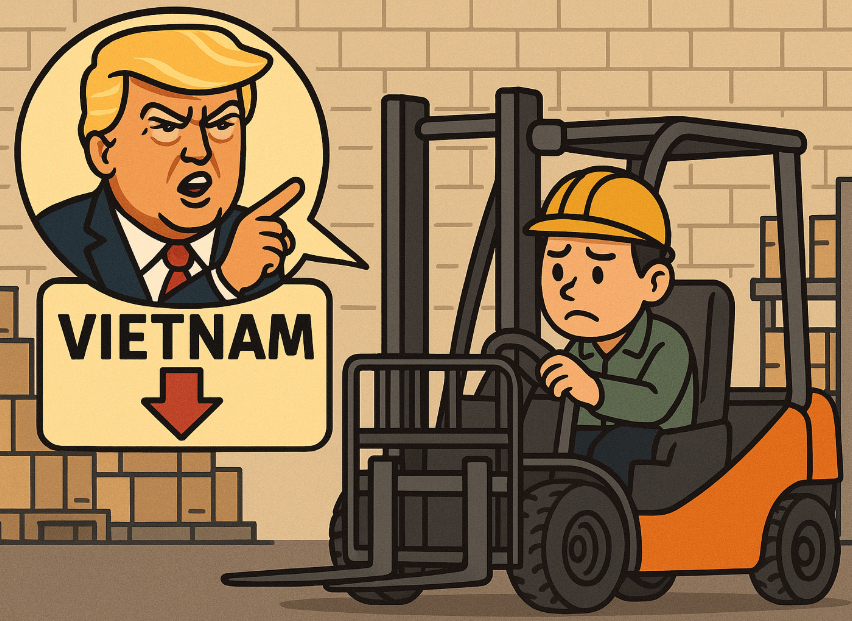Will the Forklift Industry Be Affected After Trump’s Tariff Announcement on Vietnam?
The forklift industry in Vietnam may be affected by Trump’s decision to impose tariffs on Vietnamese goods, but the extent of the impact will depend on several factors:
-
If forklifts manufactured in Vietnam are subject to tariffs when exported to the U.S.
-
If Vietnam produces and exports forklifts or forklift components to the U.S., the tariffs will increase costs and reduce competitiveness.
-
Manufacturers may have to seek alternative markets beyond the U.S. to compensate for lost sales.
-
-
If the U.S. restricts the import of components or raw materials for forklifts
-
If the Vietnamese forklift industry depends on imported components from the U.S. (such as engines, control systems, and sensors), tariffs could raise production costs.
-
This could lead to higher prices for domestic forklifts, affecting businesses using forklifts in manufacturing and logistics.
-
-
Indirect impact on forklift demand
-
If Vietnam’s exports to the U.S. decline significantly due to tariffs, many factories and warehouses may slow operations or downsize.
-
This could reduce new forklift purchases in industries such as logistics, manufacturing, and warehousing.
-
-
Changes in investment flows and factory operations
-
If foreign companies (especially from China) leave Vietnam due to U.S. trade policies, demand for forklifts in industrial zones may decline.
-
However, if businesses diversify their markets and focus on non-U.S. destinations, forklift demand could remain stable.
-
💡 Conclusion: The forklift industry in Vietnam may face indirect impacts from Trump’s tariff policies, primarily due to reduced demand from related industries. However, the extent of the impact will depend on how Vietnam adjusts its export strategies and domestic market consumption.



